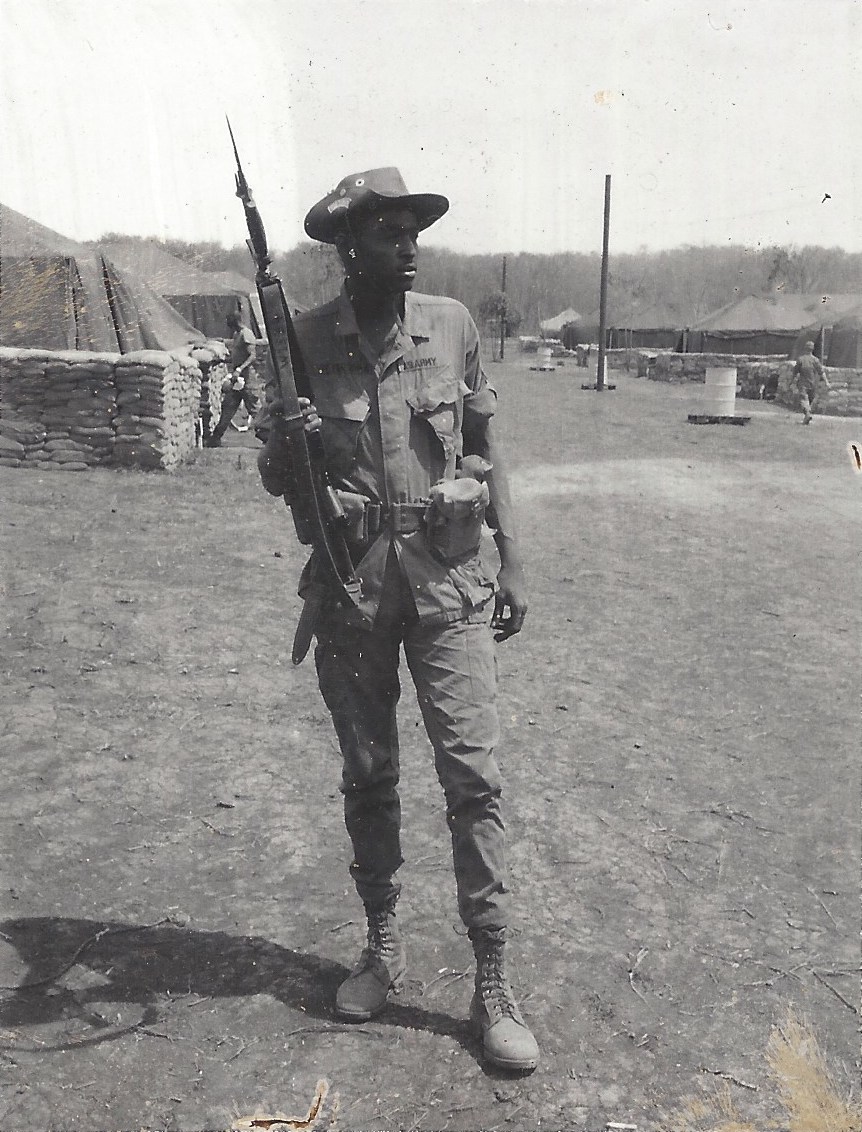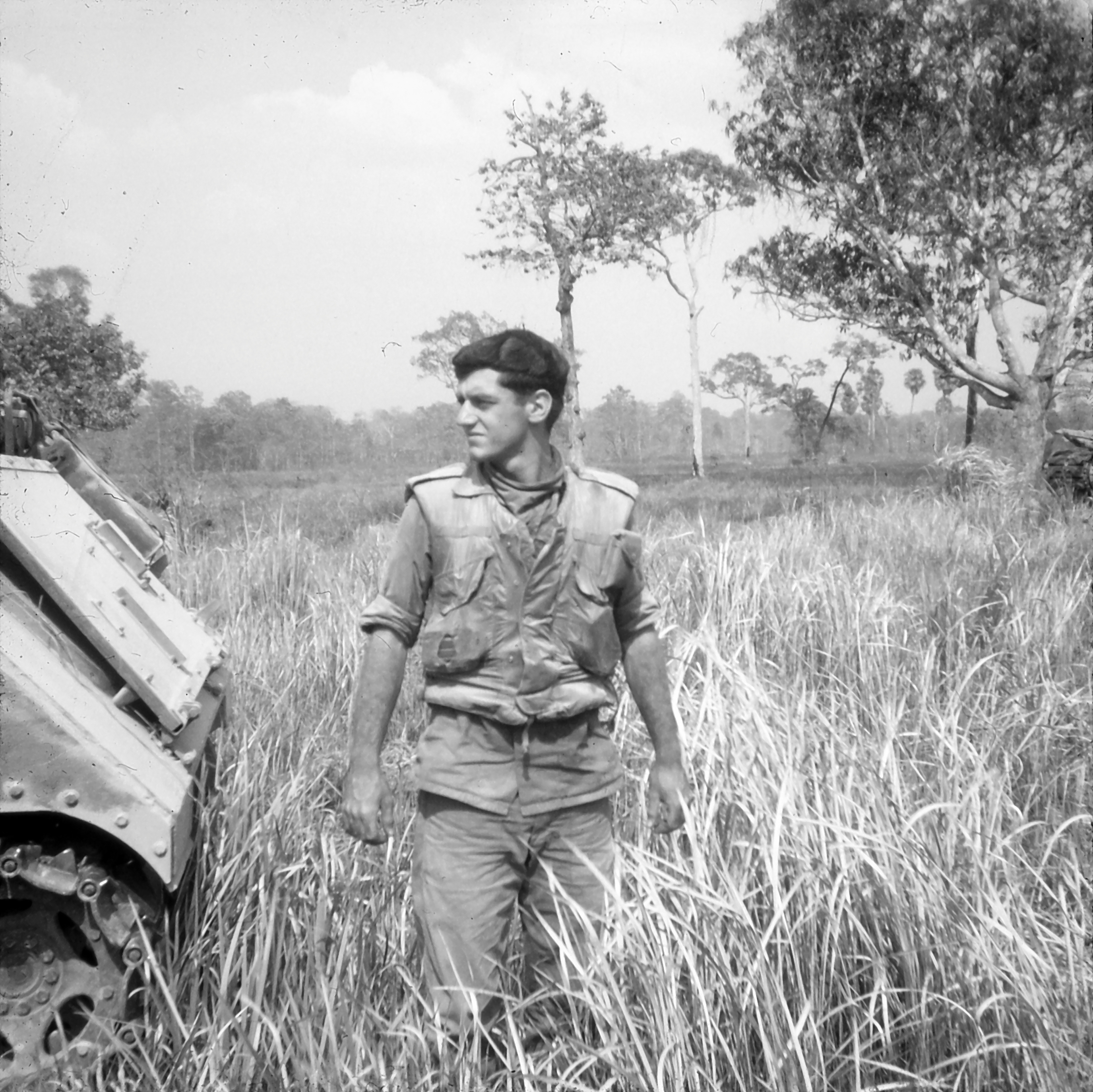The National Memorial Day Concert will pay tribute to the more than 265,000 nurses who served during Vietnam, including Diane Carlson Evans who advocated for women to have a place of honor in Washington D.C.
By Sharon Knolle
The National Memorial Day Concert, airing on PBS, will pay tribute to among its other honorees, the nurses who served in Vietnam. Former Army nurse Diane Carlson Evans, without whom we wouldn’t have the Vietnam Women’s Memorial, spoke to us about why she fought for 10 years for a memorial honoring the women who served alongside the male soldiers in Vietnam.
Like other Vietnam War veterans, Diane Carlson Evans did not talk about her experiences after serving from 1968 to 1969: “Many of us hid our experience and decided it was too painful to talk about.”
When the Vietnam Veterans Memorial was dedicated in 1982, Carlson Evans, who lives in Montana, made the journey to D.C. to see the memorial in person. She looked for the name of one of her patients and the name of Sharon Lane, a nurse who was killed in Vietnam in June of 1969.
“I found their names and it was a turning point for me personally, because I now began to identify myself as a Vietnam veteran,” she says. “Very few people knew I had been there because I didn’t tell them.”
In 1984, a second statue was added next to Maya Lin’s memorial, “The Three Soldiers,” which shows three men in uniform looking at the names on the memorial wall.
Diane Carlson Evans shares, “It was that statue that started me thinking that we don’t see women who served during wartime. We don’t read many stories about them, there haven’t been many images of them, we’re not much in the history books or movies. I thought to myself, ‘If there’s going to be a statue that looks like men, there needs to be one that looks like women. If they belong there, we belong there. We went to Vietnam to help bring them home. That was our job as nurses.”
RELATED: Trace Adkins on honoring veterans and performing at the National Memorial Day Concert
She found a sculptor to make a prototype and, with a group of likeminded allies, presented it to the Commision of Fine Arts in D.C. “They flat out rejected the idea,” she says, recalling her shock that they would not want to honor the women who cared for and comforted the soldiers.
“Women didn’t have to go. We were volunteers,” Diane Carlson Evans points out. “Women have never been conscripted into the armed forces. We signed up. We still do. Back then, they weren’t sending women into combat, but they sent nurses into combat. Nurses have died in all of our wars. That was part of my proposal, these were women who signed up and put themselves in peril to help our fellow soldiers, who were, at the time, all men.”
The reaction from the all-male panel?
A statue honoring women was “unnecessary” and its addition would “demolish” the integrity of the existing memorials. The commission’s chairman went so far as to say that if they decided to allow women to have a statue at the memorial, they
would have to allow the K9 corps to have theirs as well. “He just put us in the same category as dogs,” says Carlson Evans, who still shakes her head in disbelief.
“Maya Lin’s design was complete,” she says of the Wall. “It included the eight female nurses who died. She didn’t forget them. The statue of the three men, I felt, made the memorial incomplete, because once again the women were invisible.” Despite the rejection, she persisted. She recruited women from all 50 states to send letters to the commissioners and the federal agencies who could greenlight the memorial. They eventually got Congress, which supersedes the Commission of Fine Arts, to pass two bills to approve the site. “Then we had to fight for the design,” she says.
The first statue concept was rejected, so the nonprofit project behind the women’s memorial held a design competition. “That’s how we found Glenna Goodacre in New Mexico, a woman who captured the essence of our service,” she says.
RELATED: How stars honored American heroes and fallen soldiers at the National Memorial Day Concert
When she returned to present the new design, it was with the backing of fellow veterans’ groups, including the American Legion, the Veterans of Foreign Wars, Disabled American Veterans, Vietnam Veterans of America, and the Military Purple Hearts: “I had gone to every single convention and implored them for their support and they got behind us. Tens of thousands of the male veterans got behind us.”
On November 11, 1993, the memorial was finally dedicated. It portrays three women caring for an injured male soldier, one cradling him in an homage to Michaelangelo’s Pietà.
“It took 10 years,” Carlson Evans says. “You know what they say about women having to work longer and harder to prove ourselves.”
Her book, “Healing Wounds,” was released last year on Memorial Day. “I went to Vietnam to heal the wounds of war,” she says, adding, “that healing continues until we pass on to the other side. I do it on an everyday basis.”
While serving in Vietnam, she was aware that her life could end at any moment.
“I knew I wasn’t bulletproof. Our hospital was rocketed and mortared frequently,” she says. “Once you’re in that warzone and you’re doing your job, you just forget about yourself. The patients come first. You do whatever it takes to protect them. That was our mission. When there was incoming, we grabbed our helmets and our flak jackets and we got to work. We threw mattresses on top of patients who couldn’t get under the beds on their own. When we saw that all our patients were taken care of, then we would go for cover.
She laughs, “This idea that women can’t be in combat because they’re a bunch of ‘shrinking violets’ and the men will have to take care of them and won’t get anything done? No. In Vietnam, no man was taking care of us. We were there taking care of the men. We were there to bring them home alive. It wasn’t the other way around.”
Actress Kathy Baker will tell the incredible story of Diane Carlson Evans at the National Memorial Day Concert, which airs on PBS Sunday, May 30th, at 8:00 P.M. ET.

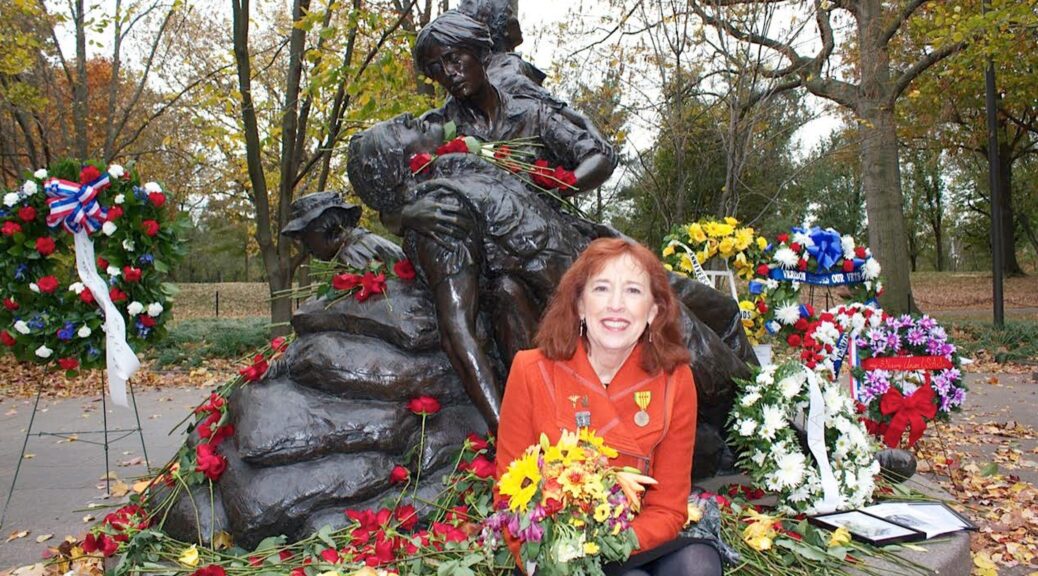
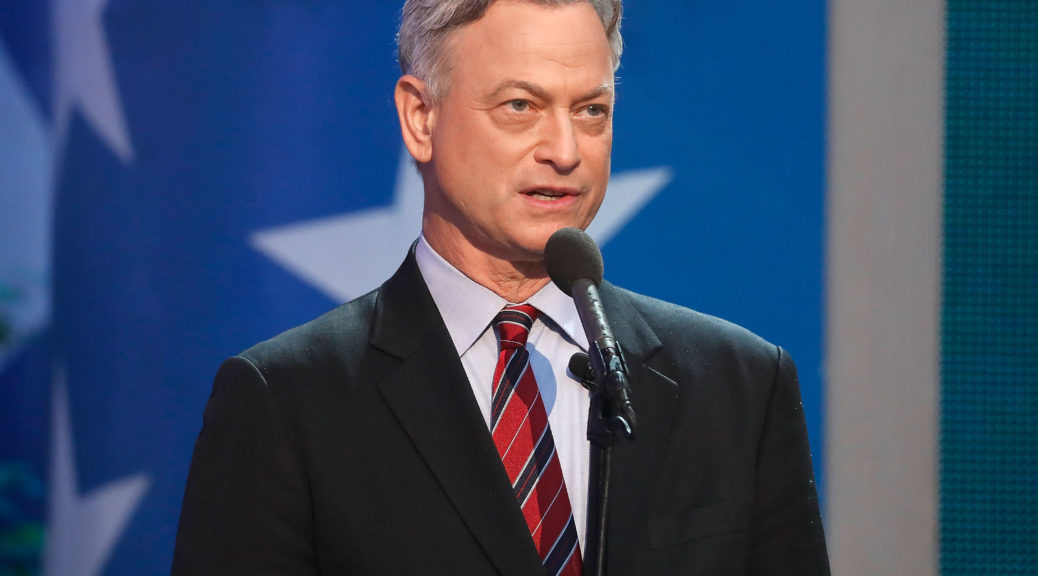
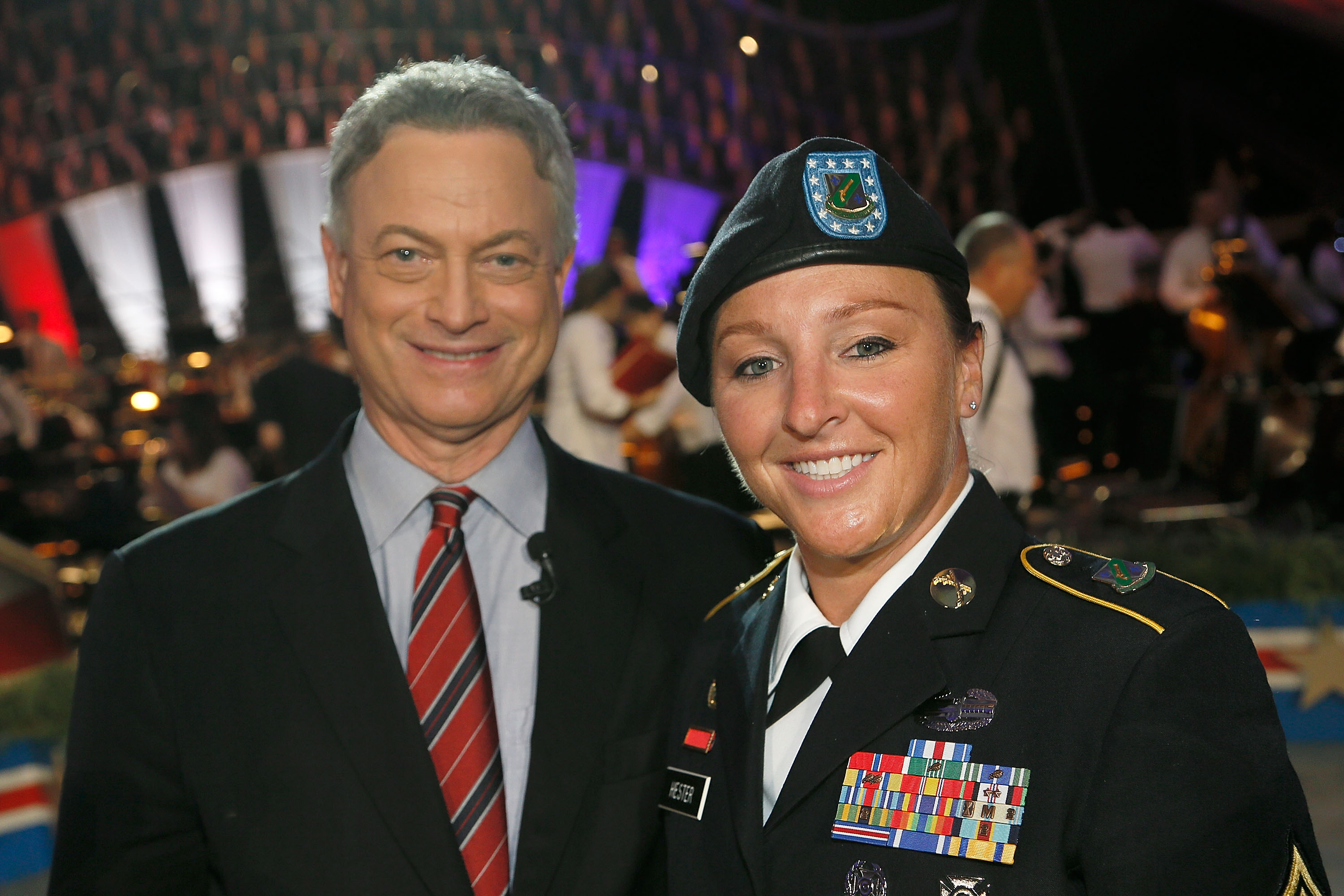 WASHINGTON, DC – MAY 27: Co-host Gary Sinise and Silver Star recipient Leigh Ann Hester pose for photo during the finale of the 2018 National Memorial Day Concert at U.S. Capitol, West Lawn on May 27, 2018 in Washington, DC. (Photo by Paul Morigi/Getty Images for Capital Concerts)
WASHINGTON, DC – MAY 27: Co-host Gary Sinise and Silver Star recipient Leigh Ann Hester pose for photo during the finale of the 2018 National Memorial Day Concert at U.S. Capitol, West Lawn on May 27, 2018 in Washington, DC. (Photo by Paul Morigi/Getty Images for Capital Concerts) WASHINGTON, DC – MAY 29: Actors and co-hosts Gary Sinise and Joe Mantegna onstage at the 27th National Memorial Day Concert on May 29, 2016 in Washington, DC. (Photo by Paul Morigi/Getty Images for Capitol Concerts)
WASHINGTON, DC – MAY 29: Actors and co-hosts Gary Sinise and Joe Mantegna onstage at the 27th National Memorial Day Concert on May 29, 2016 in Washington, DC. (Photo by Paul Morigi/Getty Images for Capitol Concerts)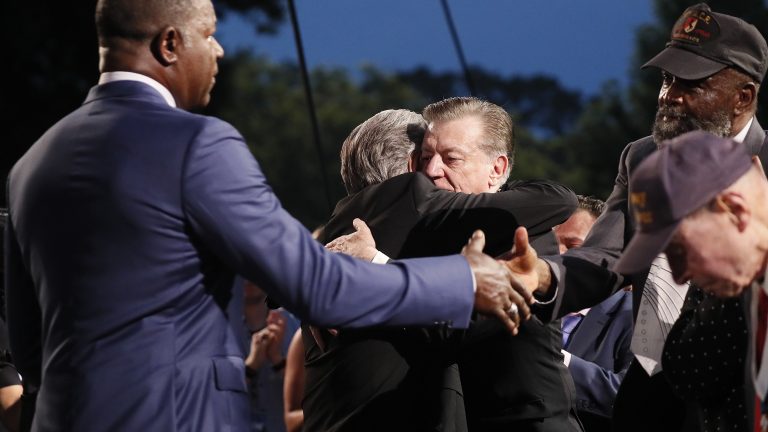
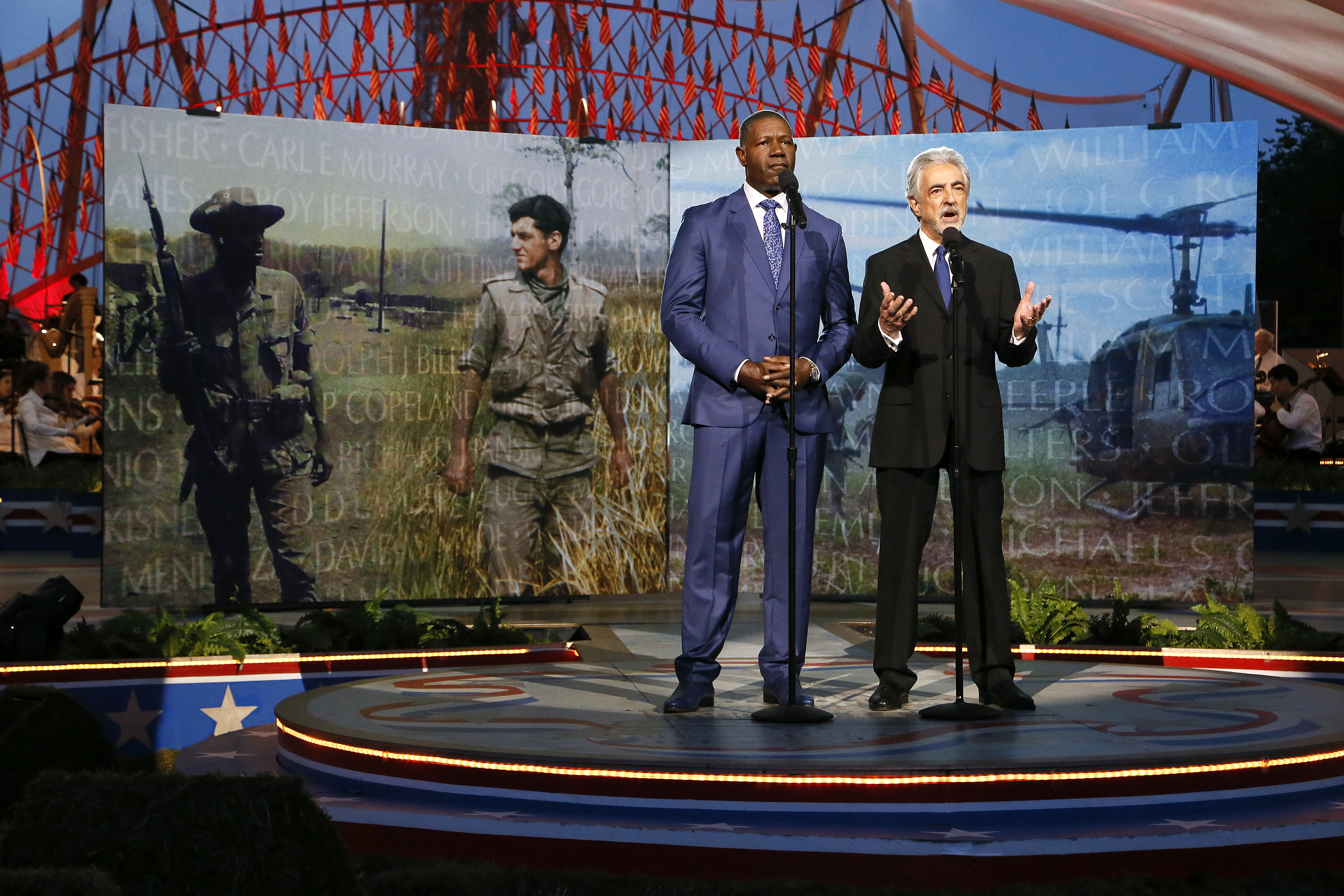 WASHINGTON, DC – MAY 26: Acclaimed actor Dennis Haysbert (L) and Tony Award-winner Joe Mantegna (R) onstage at the 2019 National Memorial Day Concert at U.S. Capitol, West Lawn on May 26, 2019 in Washington, DC. (Photo by Paul Morigi/Getty Images for Capital Concerts Inc.)
WASHINGTON, DC – MAY 26: Acclaimed actor Dennis Haysbert (L) and Tony Award-winner Joe Mantegna (R) onstage at the 2019 National Memorial Day Concert at U.S. Capitol, West Lawn on May 26, 2019 in Washington, DC. (Photo by Paul Morigi/Getty Images for Capital Concerts Inc.)